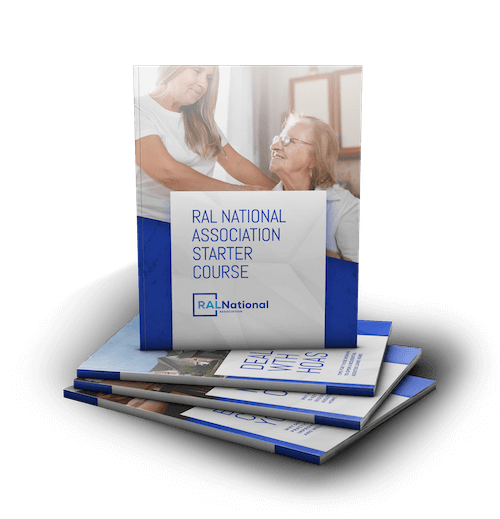Most people avoid, overlook, and disregard the discussion of creating a will. A will creates and maintains a great deal of contentment.
A will is recorded and legally binding – every senior should have a legally binding will.
Without a will, many heirs stoop to senseless infighting and manipulation. As a result, many residential assisted living homes will not admit a resident without one. This is done in order to protect the property, final payments, and wishes of the senior. The business lawyers in Hopkinsville area can help sorting out the businesses and help tie loose ends when one needs help.
After a will is drafted, seniors experience the peace of mind knowing their family affairs will remain in order. This blog highlights 7 most critical components needed in the process of creating a Last Will and Testament based on research gathered by the residential assisted living industry.
- What Is A Last Will and Testament?
- How Wills Work
- Eight Things to Include in A Will
- Do-It-Yourself Wills
- Medical Directives
- Storing A Will
- Costs and Assistance Options
I. WHAT IS A LAST WILL AND TESTAMENT?
Wills are legal documents containing the dispensing of property by the testator. The testator is the person for whom the will is drawn.
Seniors in assisted living should have a detailed plan for the dissolution or dispensation of their estate, mostly with the help of a civil litigation lawyer. When seniors die without wills, their estates lapse into a “intestate” status.
Intestate means the state will determine how the deceased’s estate will be divided. This is why residential assisted living operators strongly encourage wills to be in place during the intake process. Here is the Thomas-Walters, PLLC in Raleigh, NC 27617 that you can contact in case yo need an attorney for your case.
At the point of passing, the most important document is the will of the deceased – the Last Will and Testament will govern the affairs following the passing.
Since it is a legal document, wills are best drafted and filed by a qualified estate attorney. An estate planning attorney specializes in preparing estate documents.
Then, is every will probated? The size of the senior’s estate will determine if a probate attorney is necessary. Many seniors find a general law practitioner suitable for their needs.
II. HOW A WILL WORKS
Upon passing, all property and assets are considered the deceased estate. The Last Will and Testament will contain the name of an executor.
The executor is the living representative of the deceased. The executor is tasked with executing the will and making sure it is followed.
Executors can be anyone named by the senior prior to passing. Executors can be:
- Living Spouse
- An Adult Child
- A Family Member
- A Close Friend
- An Attorney
The validity will vary from one state to another, to be considered legal, wills should be:
- Written: handwritten or typed and printed
- Signed and dated by the testator
- Witnessed by at least two disinterested persons
- Notarized
With all of the above satisfied, a senior’s Last Will and Testament will be official. A will can be amended, changed or destroyed while the testator is alive.
However, once deceased or incapacitated, the will is binding.
III. EIGHT THINGS TO INCLUDE IN A WILL
What kind of information does a senior put in a Last Will and Testament? What should be left out of a Last Will and Testament?
A Last Will and Testament has several components. Each component covers specific aspects of a senior’s life and estate. It is imperative that all components be included, even if non-applicable. Legal verbiage can be included, if a particular section does not apply.
In many states, Last Wills and Testaments must follow specific guidelines in order to be legally binding.
- A Declaration
A testator must declare their willingness and ability to make such a document and their intentions as to its enforcement. In order for this will to be considered valid the testator must:
- Be of legal age
- Be of sound mind
- Not under any duress
- A Personal Representative or Executor
In most states the testator must name a person or institution to be an executor. This person or organization is responsible for settling all affairs associated with the deceased estate. This includes:
- Settling the Deceased Debts
- Managing Assets Throughout Probate Process
- Ensuring all wishes of the Deceased are Carried Out
Many states suggest an alternate person or organization be designated as well, just in case the primary is unable or dies before the testator. If an executor is not named, the probate court will appoint someone to administer the estate. Most likely, it is an attorney associated with the court.
- Beneficiaries to Receive Specific Assets
Those set to inherit property or assets are named as beneficiaries in the will. Beneficiaries often inherit:
- Cash
- Personal Effects
- Property
As with the Executor, a will may also name alternate beneficiaries. This is done in case the primary beneficiary predeceases the testator. In this case, the alternate beneficiaries receive what the primary beneficiary would have received.
- Directions for Allocating Business Assets
A Last Will and Testament will also cover any business assets associated with the testator. If the testator had any investment interests, board seats, ownership stakes, loans payable to the testator or anything else associated with business assets, the Last Will and Testament will dictate how and to whom these assets will go. - Plans for How Debts, Expenses and Taxes Should Be Paid
Upon passing, personal debt remains. The burden of satisfying these debts falls to the debtor’s estate. A Last Will and Testament should detail how the testator wishes these debts to be satisfied. Some may use cash to satisfy them, insurance, or liquidation of certain assets.
It is totally the testator’s choice. This is a vital part of the will as beneficiaries may be compromised if debts, especially taxes, are not satisfied. - Cancellation of Debts Others Owe
Debts owed the testator can be addressed in two ways:
- Those debt payments may continue and be made payable to the estate.
- Those balances of debt owed may be dissolved or forgiven, as long as the estate is solvent.
- Special Instructions for Maintaining Real Estate
If a particular person is to inherit the testator’s personal residence, specific instructions for the care and upkeep of the property should be detailed. - A Care Plan for Surviving Pets
Pets are often the source of much contention after a senior has passed away. Some adult children long for pets more than others. These disagreements have landed many families in court. To avoid this senseless case, a Last Will and Testament can detail to whom the pet will go and how the pet’s care will be financed as noted by the dog boarding.
IV. DO-IT-YOURSELF WILLS
Presently, there are many software packages available to help seniors create their own wills. While this is convenient and well intentioned, creating your own will can be problematic.
If the software package is not properly updated to reflect the laws in a particular state, a Last Will and Testament may be void. Calling an attorney from Patrick B. Courtney, P.A. is a good idea to help with the legalities.
Therefore, consultation with a qualified attorney is optimal to ensure your estate and wishes are properly handled.
The cost for consulting an attorney is nominal when compared to the mayhem that ensues after a senior has passed. Loving descendants can morph into mortal enemies over a ring, a chair, a hat, a dog, a house, a car, bank accounts and the like.
Therefore, ensure your Last Will and Testament is legally binding and enforceable.
V. MEDICAL DIRECTIVES
It is common for people unfamiliar with Last Will and Testaments to think a person’s medical desires are included.
Medical Directives are a document, most often created alongside a will, that gives specific instructions pertaining to one’s medical wishes.
Medical Directives should be carefully constructed, as one’s dignity at the end of life may be stained. Medication, resuscitation, life support, brain activity and several other factors and situations are detailed in a Medical Directive.
At the end of one’s life, their desires for medical treatment are just as important as the desires they have for their estate.
Therefore, a senior should be ardent in the drafting of a Medical Directive.
VI. STORING A WILL
Once a will is created, it should be protected. In stable and amenable environments, filing a copy in a desk drawer at home may be sufficient.
If an attorney drafted the will, a copy should be maintained in their office. Today, many are securely stowed away in cloud storage.
Most seniors store their will in a Safety Deposit Box. Within these secure facilities, seniors may store the paper copy of a will, to include a jump drive. The jump drive may contain a senior’s Last Will and Testament as well as their Medical Directive. If stored in a Safety Deposit Box, the executor should be apprised as well as an attorney.
One or both of these individuals should be named as permissible accessors to the contents of the box at the bank upon the testator’s passing.
Safely storing the Last Will and Testament is just as important as drafting it. The document is worthless if it cannot be located.
VII. COSTS AND ASSISTANCE OPTIONS
Wills can be drafted by the testator free of charge. However, such documents may not be enforceable if they are not compliant with the legal code in your state.
Therefore, it is best to seek legal assistance.
If the cost of legal assistance is too great, many websites offer assistance at a nominal fee. Some of these sites charge less than $100.00. However, they should be verified as useful and compliant in your state.
Residential assisted living caregivers should remind seniors that their state bar association is a great resource.
Often, some attorneys will help families draft wills and medical directives pro-bono. Therefore, make sure to consult the bar association in your state for help.
RESIDENTIAL ASSISTED LIVING USING SENIOR HOUSING TO TRANSFORM LIVES
The Residential Assisted Living National Association is the network that provides the best support nationwide. With blogs, legal support, discount services and the largest network of assisted living owners and operators in America, RALNA offers free services nationwide.
Visit www.RALNA.org to learn more about accelerating the success of your assisted living business.
It’s easy to join for free and get all the information you need at no cost.











